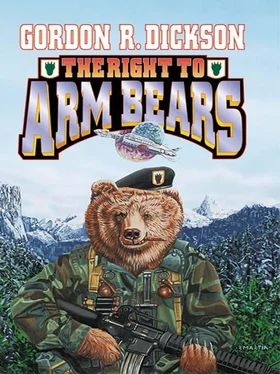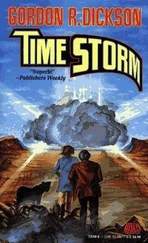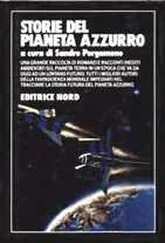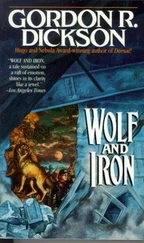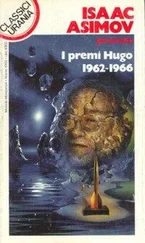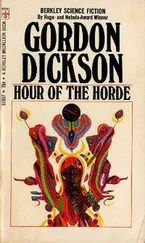“All right,” he retorted. “I’ve thought of something. Let’s head for the village.”
The Hill Bluffer still hesitated.
“Are you sure you know what you’re doing, Pick-and-Shovel?” he asked. “Like I say, Flat Fingers won’t lift weights with you now—”
“That’s what he thinks!” said Bill.
The Hill Bluffer lit up suddenly.
“You mean you figured a way to make him?” said the Bluffer, happily. “Why didn’t you say so?” He turned on Sweet Thing. “There, how do you like that? You and your female Shorties!”
Sweet Thing sniffed disdainfully.
“Oh, well,” she said. “ She would have thought of it right away.”
“Climb up in the saddle, Pick-and-Shovel,” said the Hill Bluffer, ignoring this, and turning his back on Bill. “And we’ll get going.”
Bill scaled the Bluffer’s back by means of the straps of the Dilbian’s harness, and seated himself. The three of them started back through the woods toward the village.
As they went along, the heads of Dilbians out on the street turned to look at them, and the sounds of comments, ribald and otherwise, began to float to Bill’s ears. He held on to the straps of the Bluffer’s harness, before him, looking neither to right nor left. He noticed that Sweet Thing and the Hill Bluffer were not particularly pleased, either—even though they themselves were not the target of the jeers and catcalls that pursued them as a group. The Bluffer snorted once and swung half-around, as if ready to turn back and give battle to those who were criticizing. More Jam was not to be seen, Bill noted.
However, in due time they ran the long gauntlet of the street and arrived at the blacksmith’s property. Flat Fingers paid no attention to them as they came up. He studiously avoided looking at Bill, and only grunted in response to the greeting of the Hill Bluffer.
“Well,” said Bill, as cheerfully as he could manage, in the Bluffer’s ear, “I’ll get down here.”
Flat Fingers was busy at the forge, beating rather savagely upon a piece of red-hot iron. The Bluffer was seated on the bench and Sweet Thing was standing near the Bluffer. Just outside the shed where they all stood, a crowd of villagers was beginning to gather. These stood and watched; silently, but grinning widely, and obviously expecting the worst. Bill felt a return of the coldness inside him he had felt with Mula- ay . However, he smiled and turned his back on them with as much an appearance of unconcern as he could muster.
“Well,” he said loudly to the Bluffer, ignoring the blacksmith, who had now ceased hammering and thrust the beaten piece of red-hot iron, hissing, into a dark and dirty-looking barrel of water alongside the forge, “so this is Flat Fingers’ place, is it?”
“That’s right, Pick-and-Shovel,” replied the Bluffer curiously.
Bill did not say anything more immediately. Instead he began to wander among the piles of wood and iron that were stacked up under the shed roof, stopping here to finger a broken candlestick—there to run his finger along the edge of a broken sword. Flat Fingers, having laid aside the piece of iron he had been working on before, now had picked up what apparently was a broken barrel hoop and was scowling at it.
“Mighty interesting around here,” commented Bill loudly, examining the rafters of the shed overhead. They were very stout rafters indeed, made of logs and a good twelve feet in the air, well out of his reach unless he climbed up on a stack of five- and six-foot lengths of foot-diameter logs—firewood, probably—that were piled up a little distance from him. He drifted over to the logs and began to examine them. Then he turned back to Sweet Thing and pulling her head down to approximately the level of his own mouth, spoke quietly into her ear for a second. Sweet Thing went off through the crowd, followed by the curious stares of those nearby, who watched her disappear in through the front door of the Residency. They might have gone on watching, if Bill had not started talking again and drawn their attention back to him.
“Yes,” he said thoughtfully, staring at the logs. “It’s a shame I couldn’t get here in time to have that weight-lifting contest with the blacksmith.”
“Sure was!” spoke up a voice from the crowd, producing a chorus of bass-voiced laughter.
“Yes, a real shame,” went on Bill, ignoring the reaction and nodding at the Hill Bluffer. “It would’ve been something to see.”
He looked over at Flat Fingers, who had moodily shoved both the broken ends of the hoop into the bed of coals at his forge and was grimly pumping the bellows attached to it.
“Yes…” went on Bill, fingering one of the logs and trying to estimate its weight. It was about five feet long and looked as if it might weigh pretty close to a hundred pounds. The logs underneath it were similar in size, and their weight should be about the same, “An appointment like that’s an appointment . If you miss it, that’s that. I wouldn’t insult Flat Fingers by suggesting he lift weights with me now, since I already missed one chance at it.”
“That’s playing it safe, Shorty!” boomed another voice from the observing crowd, and a new burst of laughter followed.
“No,” said Bill thoughtfully. “That’d look like I might be trying to pull the same trick all over again. So I guess there isn’t much for me to do—” He broke off as Sweet Thing shouldered her way importantly back through the crowd, the block-and-tackle Bill had made slung over one shoulder. There was a hum of interest at the sight of her, and it; but she ignored the reaction. She came up to Bill and dumped the block-and-tackle into his arms.
“There!” said Sweet Thing. She went over and sat down on the bench beside the Hill Bluffer, as if she had just done something remarkable to put everyone in their place. The crowd stared with interest at Bill and the block-and-tackle. Even Flat Fingers, over by the forge, shot a surreptitious glance in Bill’s direction.
“On the other hand,” went on Bill, as if to himself, but loud enough to be heard by everyone standing around, “I suppose I could just lift something around here, anyway, and sort of leave it lying where I’ve lifted it, and maybe Flat Fingers would notice it later—and maybe he wouldn’t.”
With these last words, thrown away in the best style of More Jam, Bill climbed up on the small pile of logs and tossed one end of the rope attached to the block-and-tackle over one of the rafters, and then tested it to see if it would slip easily. The rafter, being itself a smooth round section of log with all the bark peeled off, allowed the rope to slide around it almost as well as if it, too, was a pulley.
Bill climbed down, took the rope at the bottom end of the block-and-tackle, and ran a loop around five of the logs. He slid the loop to their center, and tied it down tight there, with the lower block of the tackle perhaps six inches above the tie. He then secured the upper part of the block-and-tackle by a separate rope to the beam itself, and once more flung over the rafter the long, operating end of the rope running into the sheaves of the block-and-tackle.
The crowd had quieted down and had been watching in interested silence while he went through these maneuvers. Out of the corner of his eye, Bill could see Flat Fingers, also watching.
“Well,” he said, when he was done, “let’s see if I can lift those five pieces of wood, now.”
He took a good grip and started to draw down upon the rope to the block-and-tackle running over the rafter overhead. The rope creaked and moved. The wooden pulleys of the block-and-tackle also creaked and whined under the strain. The rope from the pulley moved jerkily through his hands, but at first the five logs did not seem to move.
Читать дальше
